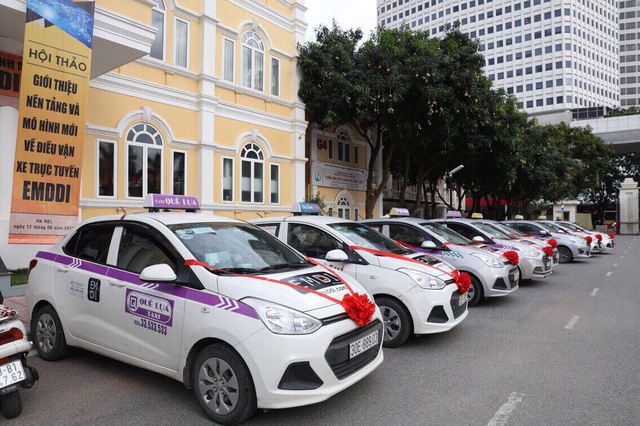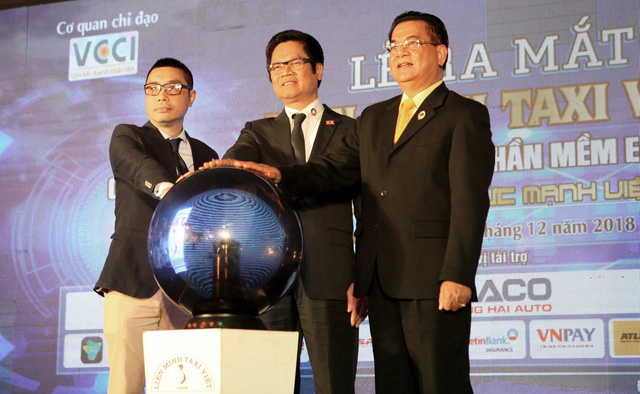Seventeen conventional-cab firms in Vietnam have formed an alliance in an unprecedented gesture of solidarity in a technology-driven era to combat rising ride-share services that are endangering their income security.
The Vietnam Taxi Alliance was unveiled on Monday, together with the ride-booking app EMDDI, developed by the Vietnam National University-Hanoi, one of the country’s two collegiate universities.
The union now has a collective fleet of 12,000 taxis from 17 member companies located in 40 of Vietnam’s 63 provinces and cities.
It is planning to be present in all provinces and major cities nationwide next year, when its taxicab number is slated to nearly double to 20,000.
The fledging alliance said passengers take one or two minutes to get connected to drivers via the app and fares will remain unchanged even at rush hour.
One of its representatives said the union, formed on a voluntary basis, has not offered an across-the-board pricing scheme and this means the fare depends on the charges of individual member firms for the time being.
Like the Grab app, the group’s EMDDI presents drivers’ identity and license number, the route and booking times, which can be used as evidence against any driver who is accused of overcharging or refusing to pick passengers due to short routes.
The smartphone program makes a link to the nearest cab if customers have failed to choose a ride-providing company.
 |
| Taxis which can be hailed by EMDDI – a common app operated by 17 Vietnamese taxi companies – park in front of a building in Hanoi, Vietnam, December 10, 2018. Photo: Tuoi Tre |
The alliance includes taxi operators of high-quality services and has put together a task force that carries out checks on its members’ performance and handles customer complaints, the representative said.
Le Vinh Quang, the Vietnam Taxi Alliance’s deputy head, said at its opening ceremony that traditional taxi companies in Hanoi and Ho Chi Minh City had to reinvent themselves and become more competitive in the face of rival ride-sharing corporations with financial and technological superiority.
The cooperation between taxi operators would yield a competitive edge, as a resultant high density of available cabs can reduce customers’ waiting time, said Dao Kien Quoc, who works at the Vietnam National University-Hanoi.
Some were optimistic about the prospect of the alliance’s income in a country where more than seven ride-sharing services are operating.
The synergy flowing from the union’s solidarity and transparent app-based service will attract customers, according to Vu Tien Loc, director of the Vietnam Chamber of Commerce and Industry.
But others were not so sure.
They said the alliance would be hardly effective because of discrepancy in service quality between the members.
Its numerical advantage does not guarantee success since customer satisfaction is also based on service quality and driver attitude, they added.
Prior to the birth of the union, the largest taxi firm group had been established in Hanoi on November 12, comprising three local operators – Thanh Cong Taxi, Ba Sao Taxi and Sao Hanoi Taxi.
With a fleet of 3,000 cabs, the syndicate is called G7 Taxi and has the eponymous ride-booking app.
Like us on Facebook or follow us on Twitter to get the latest news about Vietnam!





















































